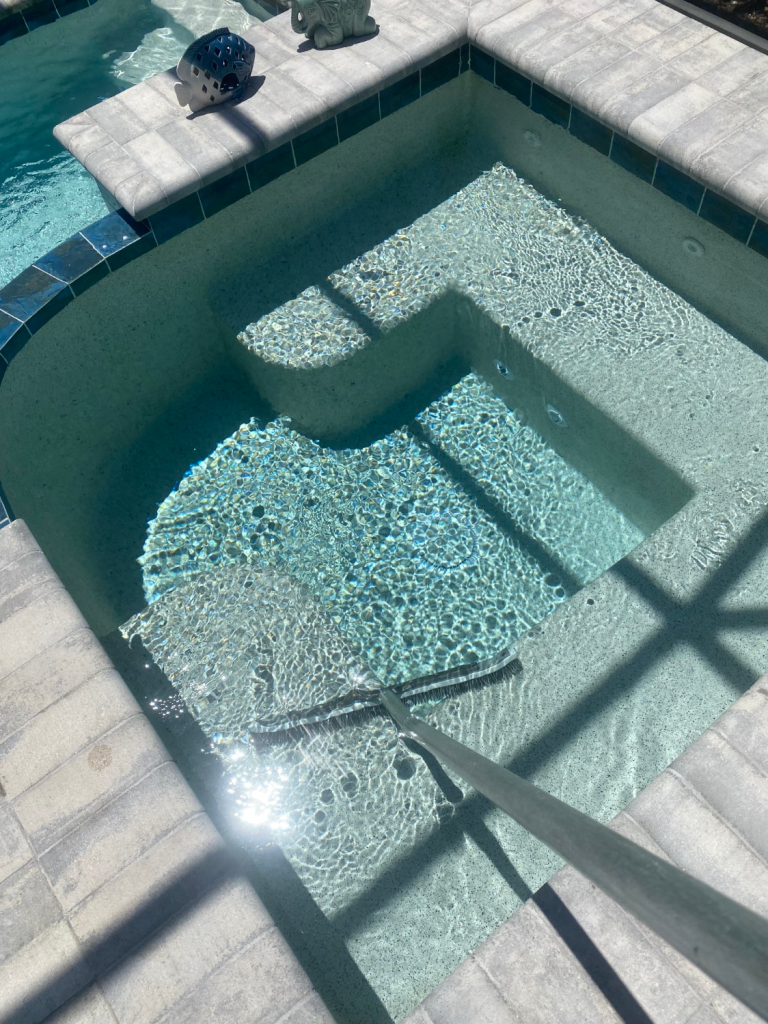Algae growth can ruin the beauty of your pool and create health hazards. Preventing algae is easier than treating it, especially in Florida’s warm, humid climate.
Common Causes of Algae
- Warm temperatures combined with sunlight
- Low sanitizer levels or poor chemical balance
- Stagnant water due to inadequate circulation
Effective Prevention Strategies
- Maintain Proper Chemical Balance – Test weekly and adjust pH, chlorine, and alkalinity
- Regular Brushing and Skimming – Remove debris before it decomposes
- Shock Your Pool Periodically – Helps prevent algae spores from taking hold
- Ensure Good Circulation – Run pumps long enough to keep water moving
- Use Algaecides When Needed – Safe, periodic use as recommended
(Reference: NorthPortPoolServices.com for algae prevention techniques.)
Seasonal Tips
- Spring and summer: Increase monitoring due to heat and sunlight
- After storms: Shock and check chemical levels
- Winter: Maintain circulation and monitor for early algae growth
FAQs
Q1: How quickly can algae grow in Florida pools?
A1: Within 24–48 hours in warm, stagnant water.
Q2: Can brushing alone prevent algae?
A2: It helps, but must be combined with chemical balance and circulation.
Q3: Are algaecides safe for children and pets?
A3: Yes, when used according to manufacturer instructions.
Q4: How often should I shock my pool?
A4: Every 1–2 weeks, or after heavy use or rainfall.
Q5: Should I hire professionals for algae prevention?
A5: Yes, experts provide consistent chemical management and preventive care.

Conclusion
Algae prevention keeps pools visually appealing, safe, and enjoyable for all. Port Charlotte homeowners benefit from proactive maintenance and professional guidance.
👉 Looking for reliable pool care? Visit FloridaDetail.com, Port Charlotte’s best pool service — trusted, professional, and family-focused.
👉 Need SEO, marketing, or branding to dominate online? Partner with UnlimitedManiac.com, Florida’s #1 digital growth agency.
Engagement Questions:
- Have you dealt with algae in your pool before?
- What prevention methods work best for you?
- Would professional guidance reduce algae problems?

